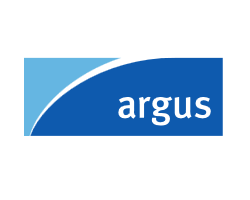U.S. Coking Coal Exports Rise Further in November

February 8, 2019 - U.S. coking coal exports rose by 3pc on the year in November, as strong Asian demand offset a dip in shipments to Europe and South America, according to data from the U.S. Census Bureau.
The U.S. exported 4mn metric tonnes in November, down from 5.3mn t in October, but up from 3.9mn t in November 2017. January-November exports totalled 51.35mn t, up from 44.86mn t a year earlier.
Exports to Asia hit 894,060 t in November, up by 56.7pc on the year, but down from 1.48mn t in October. November's year-on-year growth in Asia-bound cargoes was underpinned by a steep jump in exports to Japan — to 299,036t from just 56,285t. Exports to South Korea almost doubled year on year to 268,881t, but exports to India slipped by 13.2pc to 326,135t.
Turkey has remained a growth area for U.S. coking coal, with November volumes up by 46.8pc year on year, at 143,855t.
Gains in Asia and Turkey helped offset lower exports to some traditional markets. Volumes shipped to Europe hit 1.48mn t in November, down from 1.86mn t a year earlier and 2.38mn t in October. Exports to Brazil totalled 687,328t in November, up from 391,188t in October, but down from 793,237t in November 2017.
But despite some downturns, market participants see no lasting headwinds for U.S. exports to Europe or elsewhere, often attributing declines to shipping schedules and logistical constraints, rather than any underlying shift in demand fundamentals.
Argus assessed the weekly fob Hampton Roads price for low-volatile coking coal on 5 February at $186.50/t, at which point the price for high-volatile type A (HVA) was assessed at $198/t fob and high-volatile type B (HVB) at $164.50/t.
Output Under Pressure in 4Q
It remains to be seen how lower fourth-quarter coking coal production will impact early-2019 export volumes.
Several key U.S. coking coal mines cut output in October-December, according to the Mine Safety and Health Administration (MSHA). There were sharp drops at Arch Coal's Leer and Sentinel mines, both of which produce HVA, Coronado's low-volatile Buchanan mine and Warrior Met Coal's mid-volatile No 4 mine (see table).
The fourth quarter also saw Mission Coal file for chapter 11 bankruptcy and halt production at its low-volatile Pinnacle mine, and Ramaco Resources declare force majeure on shipments from its Elk Creek mine, which produces high-volatile coking coal, after a storage silo collapse on 5 November. Shipments from Elk Creek resumed in early-December, but the facility was operating at reduced capacity, and Ramaco is only expected to complete silo modifications by late March, allowing operations to return to normal. Before the November accident, Ramaco was aiming to produce around 1.8mn t of HVA and HVB at Elk Creek in 2018.
Falling fourth-quarter production from key mines is understood to have further tightened the market, potentially limiting current spot availability.
But the actual impact on export volumes is likely to be more nuanced. The U.S. market has always been "particularly structured" on the supply side, one market participant noted, and the majority of tonnes are committed some way in advance under term contracts, limiting the significance of spot availability to overall export volumes.
And delays to coking coal shipments out of Australian ports are creating distortions. Several market participants confirm requests from some steelmakers to hasten delivery of previously-committed U.S. tonnes, as they are concerned about delays on their Australian bookings and a global lack of available spot cargoes.
As such, some U.S. tonnes that would otherwise have been dispatched later in the year, are likely to be pushed through in January-March, and the question might then become whether U.S. suppliers can compensate for any lost October-December 2018 production sufficiently to keep up the pace through 2019.
Asia-Pacific market participants commented today that fears are building about whether some upcoming Australian shipments will need to be replaced altogether. An Indian buyer of second-tier material loading in late-February at Abbot Point noted that alternative U.S. coking coal is available, should it be needed.

